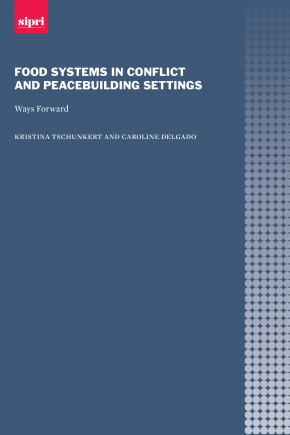Food Systems in Conflict and Peacebuilding Settings: Ways Forward

As of September 2021, 161 million people were estimated to be acutely food insecure. Most of these people live in countries where violent conflict is the main driver of hunger. Conflict has a direct negative impact on food systems and resultant levels of food security.
This paper is the third and final paper of a series that aims to emphasize the urgency of addressing the relationship between conflict and food insecurity. This paper explores the opportunities for breaking the pathways between food insecurity and violent conflict, which were set out and contextualized in the preceding two papers. Equitable and sustainable food systems have the power to foster peace. The paper argues that for food system transformation and food security activities in conflict and peacebuilding settings to create conditions conducive to peace, it is important to apply a peacebuilding lens to food security interventions and a food security lens to peacebuilding efforts. An approach that integrates humanitarian, development and peacebuilding objectives is needed to break the pathways between food insecurity and conflict. The paper ends with four recommendations for humanitarian, development and peacebuilding actors that seek to provide guidance for measures that can be taken to advance such an integrated approach.
1. Introduction
2. Knowledge gaps in global responses and policy debates
3. Food systems transformation needs concerted implementation and funding
4. Transforming food systems: Local food systems in focus
5. Operationalizing a nexus approach in support of food security
6. Conclusions and recommendations

